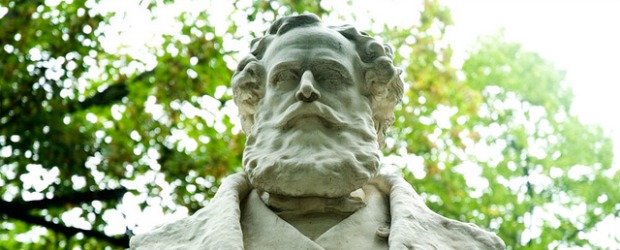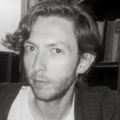You have no items in your cart. Want to get some nice things?
Go shopping
I once used a website to generate anagrams for my name (my real name, not the pen name I’m palming you off with), and found to my delight that I am in fact “a verb wild sod”. This neat piece of nominative determinism pleases me, as I am a writer, and quite fond of indiscriminately lobbing verbs around.
Behind this joy, of course, there is an assertion: I am a Writer. And it’s a statement many of us have adopted because we are constantly being nagged by real Writers in blogs and books for Writers to think of ourselves that way. Being a Writer carries a certain presence – not for us the normal going-about-one’s-business; we sit back and observe the world, retire to our isolated study, banish the distraction of loved ones, and meticulously craft our messages to the world, our legacy. I get respect from acquaintances who haven’t read a word I’ve written because people describe me as one of these special beings. We are artists, with discipline, and our primary function in this world is to write – although perhaps we don’t take it quite as seriously as William Faulkner, who wrote: “The writer’s only responsibility is to his art… If a writer has to rob his mother, he will not hesitate; the ‘Ode on a Grecian Urn’ is worth any number of old ladies.”
Perhaps what these scribes really want is for us to realise that we are already writers. “Becoming a writer is not a ‘career decision’ like becoming a doctor or a policeman,” according to Paul Auster, “You don’t choose it so much as get chosen, and… you have to be prepared to walk a long, hard road for the rest of your days”. Or, as one of my university tutors put it, “writing is like a disease, a compulsion. You have to do it even if you don’t want to. If you aren’t born that way, you won’t succeed on this course”. Given that said course had “media” in the title and took anyone with a couple of D-grade A-levels, this caused great discomfort. (Yes, I studied creative writing at university. No, I haven’t had any novels published.)
But the long hard road, the chosen vocation, the isolation of the job – it’s romantic isn’t it? A seductive image – the lonely author straining his eyes by candlelight, dabbing his quill into the ink pot, not even half-way through his magnum opus but fighting against fatigue and the terrible reality of the blank page. Ascetic effort, arcane art. And just maybe something of an ego trip? While Soul Mountain author Gao Xingjian is writing to “ease his suffering […] and re-affirm his own existence,” what are those poor non-writers to do?
There are pitfalls with this whole “I’m a writer” philosophy. It’s a label. I don’t trust labels. To carry a label is to carry a sense of certainty about the nature of one’s self, which seems a dangerous thing to do. The opinions of human beings are inconsistent, and drift like feathers in the wind. The things we believe about ourselves guide the way we act – and the limitations we perceive turn real. The coward, for example, says, “I can’t! I’m a coward,” and he doesn’t. We label others too, as easily as we label ourselves, and the labels that others give us are significant. Do people really know us or have we become what they’ve suggested? To what extent are we what other people, from our parents to our peers, told us we are?
Oh dear. I’m in danger of turning into a Philosopher, which is even more decadent than being a Writer. But stick with me here; my notion is of some inner truth, and I hear that truth is a big concern for us writer-types. It’s said that writers write to discover truth, or even act out truth in their writing to inspire its perception in others. But what if the truth is something we cannot appreciate while locked in the mindset of the writer? Would we put down the pen if it could get us closer to truth? Or would we rather rob our mothers?
The idea of being a writer brings to my mind Nietzsche’s idea of a spectator watching a dance. As we writers watch the world, and congratulate each other on our powers of observation, are we missing out on something? It’s a paradox: the dancer dances without awareness of the action, yet the spectator sees the dance and sometimes wishes he could just be there, inside the dance, oblivious.
I’m not attacking the idea that we should perceive ourselves as writers, merely examining it. After all, it doesn’t seem impossible to combine an innocent joie de vivre with the ability to write about life. The notion of being a writer brings many benefits – discipline, a sense of purpose and self-confidence that all go a long way to make our musings worth reading – and importantly, make us sit down and write them.
I tentatively wonder though whether the writers who get the lion’s share of the Muses’ time are the ones who could give up the prestige of the writing identity – who are so committed to life and truth that they would put their pens down if some capricious god told them if would get them closer to the heartbeat of it all.
Still, if one day I stop being a writer, I can always be something else. And I must admit to being quite enticed by another anagram of my name, “Lord Bad Wives”. Sends my writer’s imagination reeling.
(David Glass is a writer.)

About Daevid Glass
Daevid reverse-engineers morsels of reality and extracts their meaning, injecting this concentrate into carefully assembled words and hoping for a positive outcome. This process began when, as a child in Essex, a school teacher asked him to write a poem about a rocket launch. He hasn't stopped writing since – primarily prose fiction but also arts criticism and film and radio scripts, having had the pleasure of taking a creative writing degree along the way. He lives in Oxfordshire on the isle of Albion and is working on his novel, Resuscitating God.



